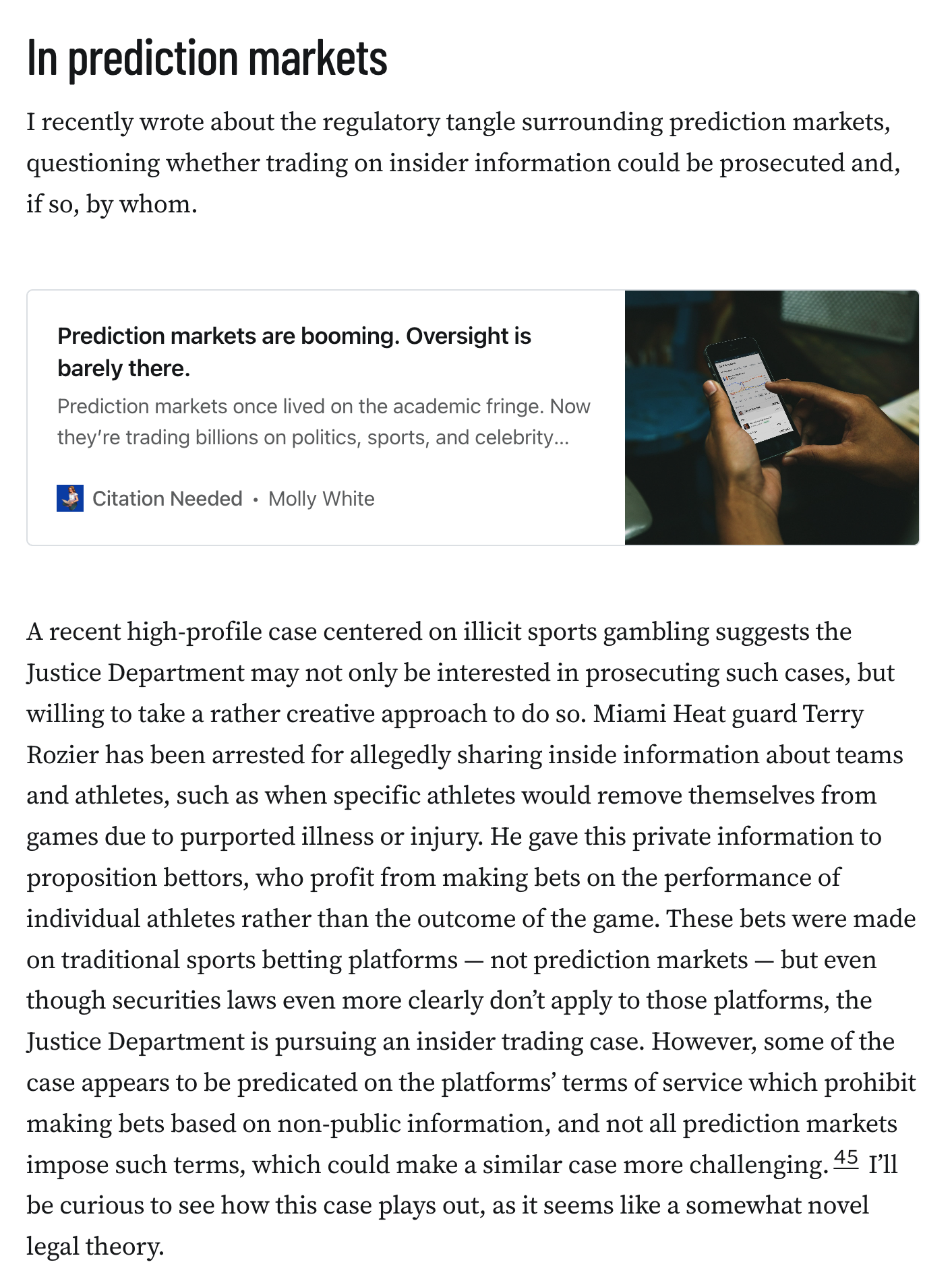The DOJ case against Miami Heat guard Terry Rozier could be an interesting one to follow for those of us watching the regulatory approach to prediction markets. The DOJ is pursuing an insider case, even though securities laws don’t apply to sportsbooks.
Post
@molly0xfff Is it purely a matter of whether El Jefe is getting his cut; or is there some sort of ideological distinction(however confused or ill-informed) behind the law getting stretched wildly in one direction for the crypto bros and wildly in the other to try to find something to pin on sports betting?
@molly0xfff shouldn't relevant state Gambling Commissions be investigating?
@hyc state gambling regulators are likely assisting, but the DOJ brought federal wire fraud and money laundering crimes
All this and more in this issue of Citation Needed, an independent publication, entirely supported by readers like you. Consider signing up for a free or pay-what-you-want subscription — it really helps me to keep doing this work.
@molly0xfff Proud supporter! Keep up the good work!
bonfire.cafe
A space for Bonfire maintainers and contributors to communicate

